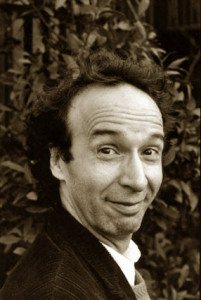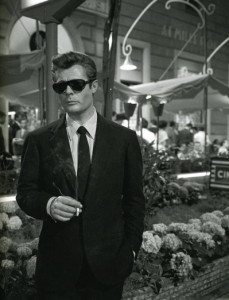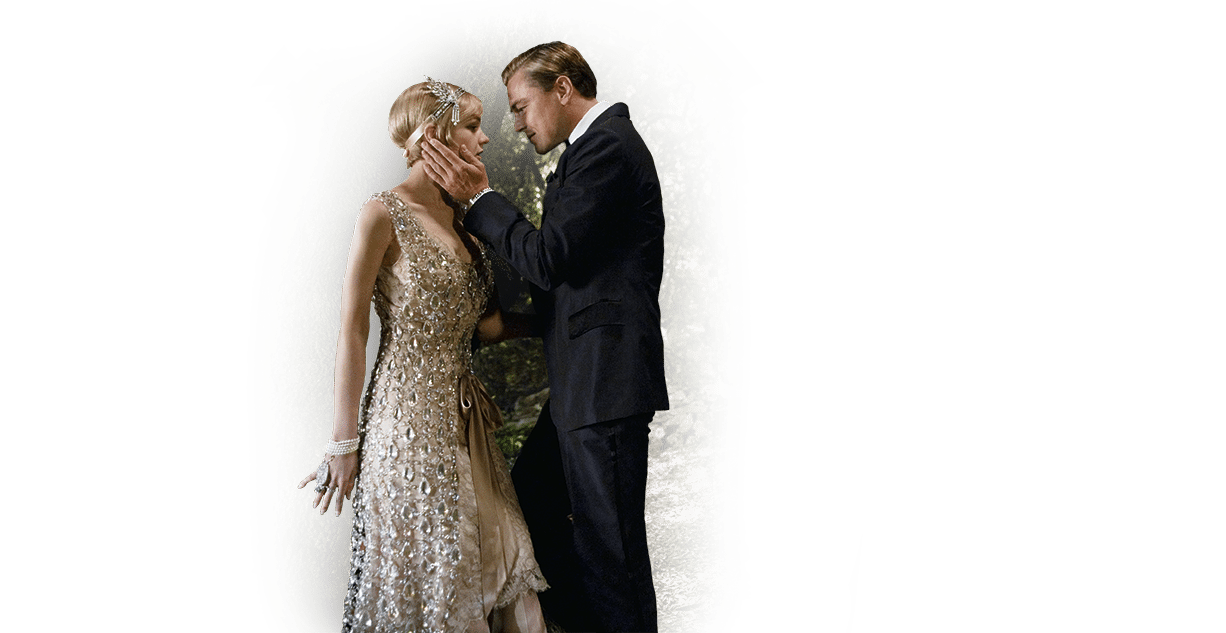Beauty and the Gatsby: Greats from two nations
The night of the Oscars, beyond any patronising and carefully prepared speech of thanks, is a unique show that every year leaves us with something memorable. This year was the turn of the ‘selfie’ and of the delivery pizza, offered by the always-hilarious Ellen DeGeneres. But the surprises did not stop there; at the 86th Academy Awards, Italy arose victorious again after 15 years, winning Best Foreign Language Film with Paolo Sorrentino’s The Great Beauty. As an Italian, this gives me great pride, as a movie enthusiast it leaves me sizzling.
 Italy, a land of art and culture, returns to its true identity. Finally under the limelight neither for its political scandals, nor for its international gaffes taking place in council or bedchambers: Italy is back to show its true face. Italians are in fact capable of sensitively analysing, a skill which they always forget they are equipped with, and which enables them to go beyond the surface, even if this leads them to discover something emotionally upsetting. The last Italian to receive such a prestigious award was Roberto Benigni, who with his masterpiece Life Is Beautiful had touched the hearts of the world, showing hope within horror and proving what Italy is capable of.
Italy, a land of art and culture, returns to its true identity. Finally under the limelight neither for its political scandals, nor for its international gaffes taking place in council or bedchambers: Italy is back to show its true face. Italians are in fact capable of sensitively analysing, a skill which they always forget they are equipped with, and which enables them to go beyond the surface, even if this leads them to discover something emotionally upsetting. The last Italian to receive such a prestigious award was Roberto Benigni, who with his masterpiece Life Is Beautiful had touched the hearts of the world, showing hope within horror and proving what Italy is capable of.
Now Paolo Sorrentino has the merit of having revived the Italian silver screen in the world, which has managed to survive with dignity, through the difficulties posed by those Christmas movies characterized by low comedy and aiming simply at selling out the box office. As an Italian and an Erasmus student in England, the only critique I could aim at the director concerns his accent, which is certainly not up to standards. But you can’t expect to achieve everything in life; an Oscar and a talent recognized worldwide are then perhaps sufficient.
And speaking of talent, I cannot refrain from mentioning a great actor, notably left out of this award ceremony. I am certain you have all understood whom I am talking about: Leonardo DiCaprio. His exemplary performance in The Wolf of Wall Street, has not granted him an award, but according to my personal opinion he remains one of the best actors worldwide and one of the few child stars who has not lost himself in translation, but has found a home in his job.
Personally, one of DiCaprio’s latest roles, which has greatly impressed me, is that of Jay Gatsby in The Great Gatsby. Perhaps it’s because of the humanity he discloses, that same humanity which DiCaprio has always struck me by. His Gatsby is the prototype of the passionate, eager and dreamy human kind – a young Prometheus who has discovered love and believes solely in itself. It’s a convincing, moving and brutally human performance. Proof that he has ceased to be a promising actor and now has become an established one.
In many ways Toni Servillo star of The Great Beauty is like DiCaprio. At his forth film with Sorrentino, Servillo is now established as one of the finest Italian actors and has given meaning and a breath of fresh air to previously stereotypical characters. And DiCaprio too never falters in his performance and has instead turned a film, otherwise at risk of wiping out Fitzgerald’s original message, pure even with its excessive nature, music and scenes into a performance adult-worth.
With The Great Beauty, Paolo Sorrentino instead gives us his portrayal of a Rome that echoes the sophistication of La dolce vita and responds to the decadent and baroque To Rome with Love by Woody Allen, a film that appears to not have understood the historic city, remaining within the borders of a commercial and touristic area. Sorrentino once said in an interview “The monumentality of Rome always managed to connect with people’s feelings”. It is an Italian that ultimately proves to have understood this ancient city beyond its postcard image, descending into the highest degradation of the wealthiest.
Sorretino’s Rome cannot be dismissed as a pretentious attempt to show splendor and decadence, or as the pompous march of the death of a city and its false hopes. This Rome is life itself, a desolate setting that only men can enrich. The contradictions are inherent in our time, they are the present: the Cardinal who provides recipes rather than spiritual advice, the writer who loves the television lounges, the nun who winks at the handsome young man, the strange neighbour who turns out to be part of the mafia, the self-styled artist who cannot explain what thrills her and hides behind a thousand tricks, tricks that are everywhere, tricks that build up everyone’s life.
 A comparison with Federico Fellini comes immediately to mind, ignoring mischievous accusations of plagiarism, but rather recognizing the tribute and the inheritance of a message that still has to be reiterated. “Warm and quiet jungle, where you can hide well”, words uttered by La Dolce Vita’s Marcello Rubini giving the definition of his Rome – he is too absorbed and bored by the joyful vortex which had led him to lose himself. The Great Beauty’s lead Jep and La Dolce Vita’s Marcello are both hopeless travelers within those realms. And just like Fellini, Sorrentino also gives us scenes loaded with symbolism, glimpses of sacred elements and then back to earth, in the truest profane.
A comparison with Federico Fellini comes immediately to mind, ignoring mischievous accusations of plagiarism, but rather recognizing the tribute and the inheritance of a message that still has to be reiterated. “Warm and quiet jungle, where you can hide well”, words uttered by La Dolce Vita’s Marcello Rubini giving the definition of his Rome – he is too absorbed and bored by the joyful vortex which had led him to lose himself. The Great Beauty’s lead Jep and La Dolce Vita’s Marcello are both hopeless travelers within those realms. And just like Fellini, Sorrentino also gives us scenes loaded with symbolism, glimpses of sacred elements and then back to earth, in the truest profane.
The cornerstone of this film is certainly Rome, for better or for worse. Rome is the journey in the afterlife; it is the great metaphor of the decadent reality in which we are immersed. Jep is our Virgil in this ‘Divine Comedy’, and we, like Dante, follow him, watching him slide and flip through the pages of the jet set, taking advantage of everything but never really taking part in anything, aware that there is something else which has been forgotten and which rarely rises to the surface taking men by surprise.
As heroes of modernity, Jep Gambardella and Jay Gatsby offer both resemblances and dichotomies. Jep wanders in search of his ineffable great beauty, Gatsby is a man who has found, or at least blindly believes so, his own. Both are surrounded by nothing and are aware of the vanity of those realms, roaring and crying at the same time. One knows that he is on a journey, the other believes he has reached the destination. And it is equally possible to identify ourselves with both in the same ardor. Jep, so bluntly bored with life, which also hides the dreamer he used to be in his youth. Gatsby with his hopeful eyes, alive like no other, looking at everyone with that binding trust, who lives to love, who loves to live, who believed in the green light. They are men who do not fit into reality, who are not satisfied and want to take that extra step. Whether it is called the great beauty or the green light, Gatsby and Jep remind us how important it is for men to search, to have hope, to believe in something beyond the tangible, to escape from the everything and the nothing.


Comments